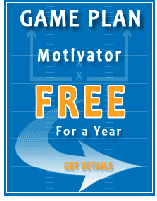 One of the most important challenges in leverage an offshore team for an IT implementation is to communicate effectively. If this is not taken seriously, all the efforts surrounding making the offshore strategy successful could be wasted.
One of the most important challenges in leverage an offshore team for an IT implementation is to communicate effectively. If this is not taken seriously, all the efforts surrounding making the offshore strategy successful could be wasted.
Communication can be difficult because:
The offshore team is often in a different time zone. Meetings are often very early in the morning, or very late at night (often both).
- Meetings are usually virtual – often onshore and offshore team members never meet.
- The onshore and offshore team don’t always share the same first language. Even in a situation where they share the same first language, accents can be a problem. (Although it can also be a problem between onshore resources). I think people get used to by French-Canadian accent fairly quickly, but it took me a long time to get use to the Indian accent. Expressions also vary from country to country.
- There can be cultural differences leading in communication failure.
Cultural Differences
Erran Carmel and Paul Tjia wrote a great book called “Offshoring Information Technology – Sourcing and Outsourcing to a Global Workforce” in which they list examples of such communication failures with Indian offshore teams. Among their observations, they say that Indians are less likely to engage in small talk than most of their Western counterparts and that they tend to be too optimistic about times and schedules (referred to as the “Indian factor”). Indians are also reluctant to say “no”; they may say “yes” even when they mean “no” to avoid having to give bad news.
Their book also lists many expressions used in English which can be interpreted in a bad way by an offshore team. For example, when an English speaker says “Not bad”, he means the work is good; the offshore resource could interpret that as the work being of poor quality. Another example is when an English speaker says “Interesting!”, it can mean he or she does not agree or believe what the other person is saying; this could be understood as “they are impressed” by the offshore resource.
Improving Communication
- Avoid slang, idioms and acronyms, and speak slowly. Ensure your message is well understood
- When giving a task, ask probing question to ensure the task is well understand.
- Keep written communication short
- “Offshoring Information Technology” mentions six “R” rules: Repeat, Reduce, Rephrase, Reiterate, Review and Recap.
- Have regular meetings (usually daily)
- Use collaborative tools such as Wiki’s when possible
- Be patient – you may have problems understanding them and vice-versa, but treating each other with respect is they key to develop a solid working relationship.
- Read more about the cultural differences with the country in which the offshore team is located.
- If the project is big enough and the offshore contribution significant enough, it may be worth it to meet the offshore team in person. This should create stronger bonds between the onshore and offshore team.
- If most of the meetings are held over the phone (video conferencing not available), sharing pictures of the team members can also help out in creating bonds.




